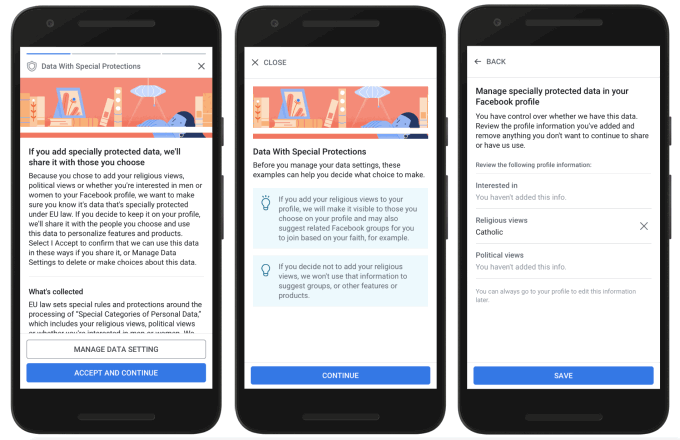You’d be forgiven if this Facebook post (called Complying With New Privacy Laws and Offering New Privacy Protections to Everyone, No Matter Where You Live) led you into believing that everyone, no matter where they lived, would be covered by the new privacy protections.
Sadly, this appears not to be true as Facebook is making a concerted effort into moving its 1.5bn users away from Facebook Ireland into the US. The change affects users from Australia, Asia, Africa and Latin America. All users outside of Canada and the US used to enter into contract with Facebook Ireland Ltd. upon creating an account. Non-EU users will now end up routed to Facebook’s US HQ in California.
Mr Zuckerberg claimed earlier this year that the new regulations will apply to everyone “in spirit”. This left the sheeple speculate about the real meaning behind the term. Facebook claims the change was enacted mostly due to specific language required by the EU regulations. It most certainly did not have anything to do with the fact that US courts are more lenient and the fines by an order of magnitude lower. This leaves only about 400 million Facebook users protected by the new EU regulation, the General Data Protection Regulation. Had these users remained in contract with Facebook Ireland, the GDPR would apply to them as well, regardless of their domicile.
It is obvious, however, that the new regulations will seriously stifle Facebook’s data collection practices. It is doing everything it can to push back against a direct attack on its main revenue stream. This is a logical move after Facebook CFO David Wehner warned the GDPR could result in a drop in usage.
For European users, the changes are numerous, bur largely superficial. What we saw is a laughably bad ‘parental consent’ verification system. It is accompanied by a still-maligned self-service data download system. And to top it off, a new permission review consists of a multi-page pop-up with buttons urging you to give consent. Disabling the options is incredibly convoluted. Obviously, Facebook would rather you leave those settings turned on.

The blue button is deceptively positioned, and the grey button leads you to yet another page….
It is also very difficult to delete your account if you do not agree with the new terms of use. The user is forced to jump through hoops and must indicate their choice by clicking on a tiny hyperlink. To wit, only the “negative” options come in the forms of tiny hyperlinks. The others, namely to “accept” and “continue” are clearly marked with eye-catching blue buttons.
On the other hand, there are reports Facebook is preparing for the GDPR… by asking for your consent in the same lopsided way or even auto-enrolling you into their facial recognition scheme. This is probably a last-ditch effort to get users onboard before the more stringent consent requirements take place.
There are literally hundreds of ways Facebook could have presented this information, but it is likely that users would then actually opt out of their data hoovering machine. We aren’t even sure that, in its current state, the forms themselves are GDPR-compliant. If they indeed turn out to be GDPR-compliant, such compliance certainly isn’t in the spirit of the law.
In a way, this is a testament to the brilliance of Facebook and all the ways they go towards padding their bottom-line. Unless the users grow a pair and start leaving en masse, that is. Even Facebook itself says it: if you don’t like it, well, you don’t have to be on it. Until then… enjoy your ads!







